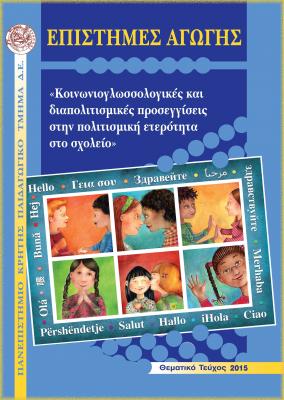Η πολυγλωσσία στις μειονοτικές οικογένειες της δυτικής Θράκης: Γλωσσικές ιδεολογίες και εκπαιδευτικές επιλογές
DOI:
https://doi.org/10.26248/edusci.v2015i4.1663Keywords:
Muslim Greeks, minority education, Family Language Policy, language beliefs, language ideology, language managementAbstract
Muslim Greek citizens living in Western Thrace are entitled to bilingual, minority education, where both Greek and Turkish are used to teach the curriculum (grades 1-6). In the last few years, however, a growing number of parents have been sending their children to mainstream primary schools, where all subjects are taught in Greek and there is no provision for Turkish language courses. This paper reports on the findings of a smallscale study where interviews with eleven parents were used to collect data on their language practices, language ideology and beliefs, and language management, following Spolsky’s (2004) approach to the Family Language Policy framework. The main issue discussed here is how parents’ language ideology and beliefs are related to their choice of monolingual, mainstream education for their children.


